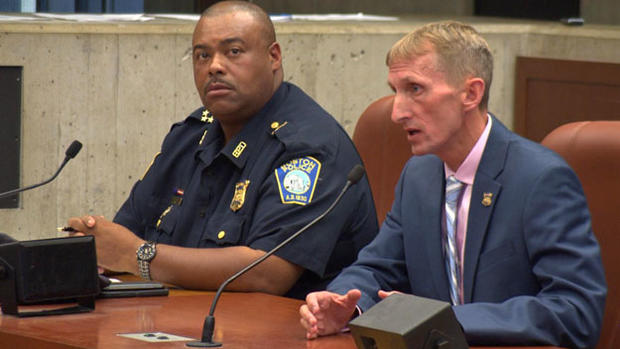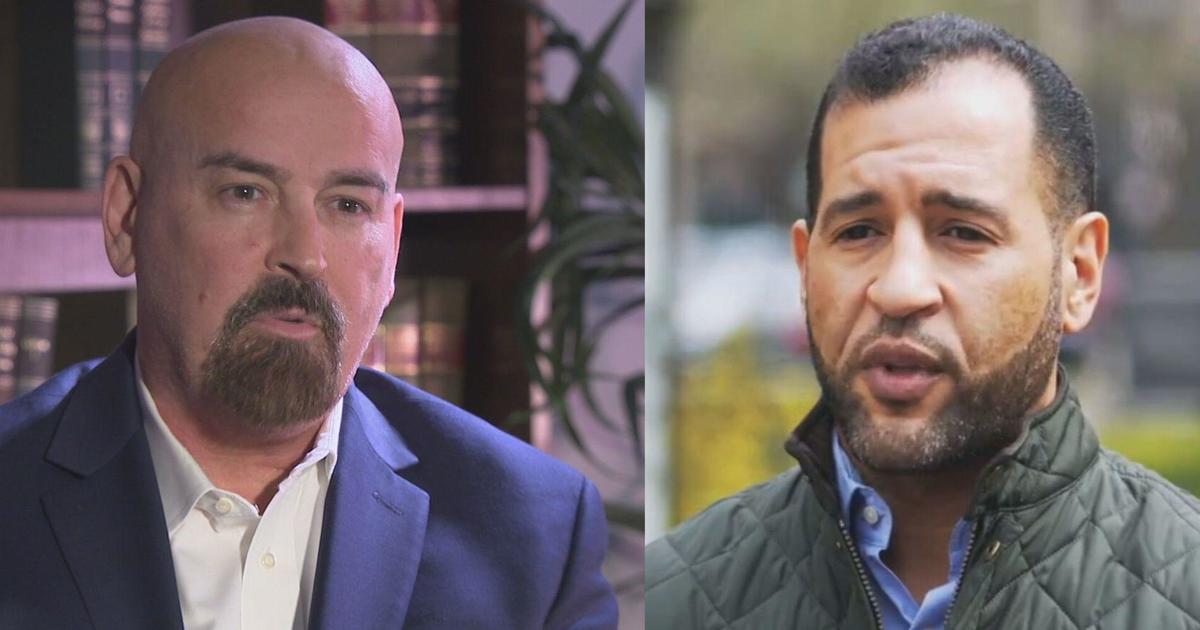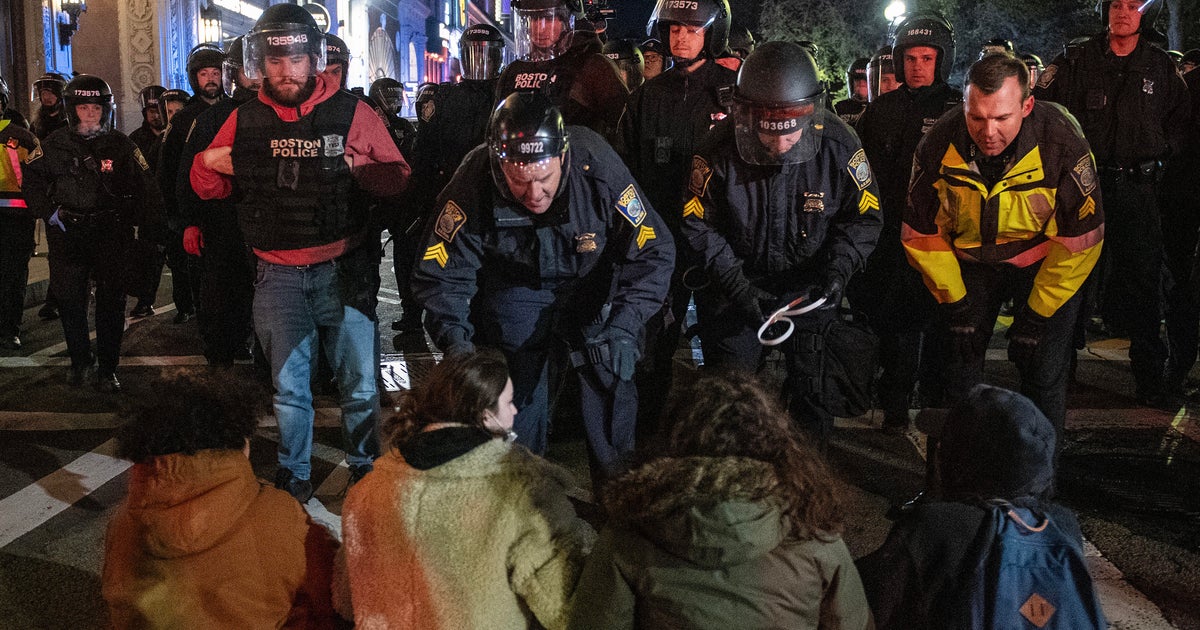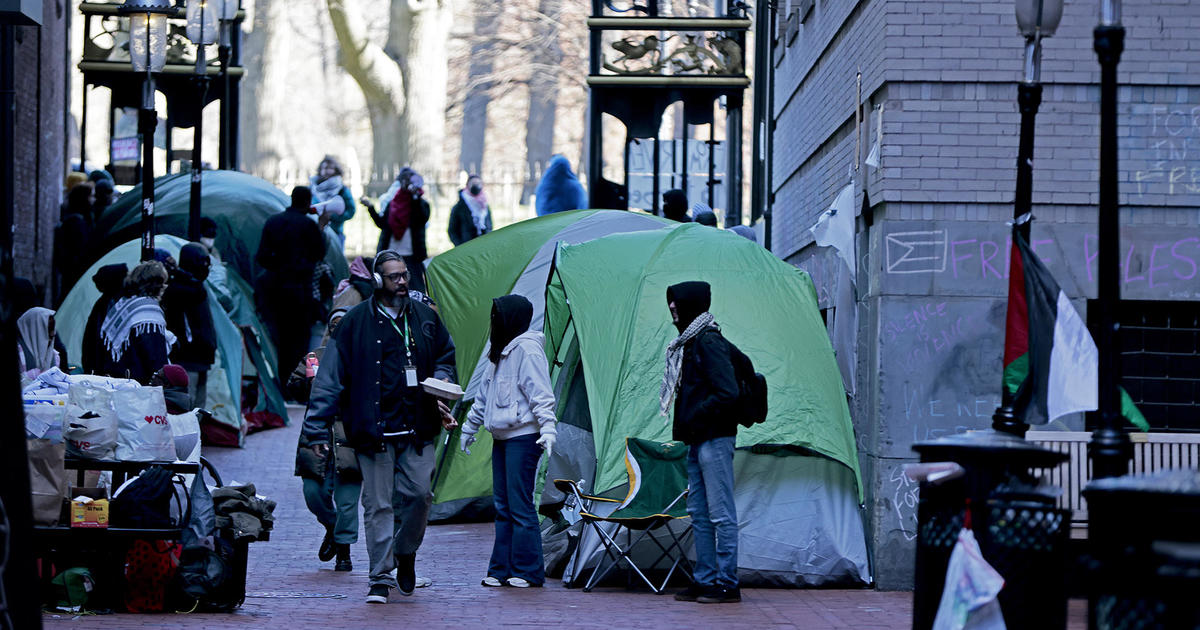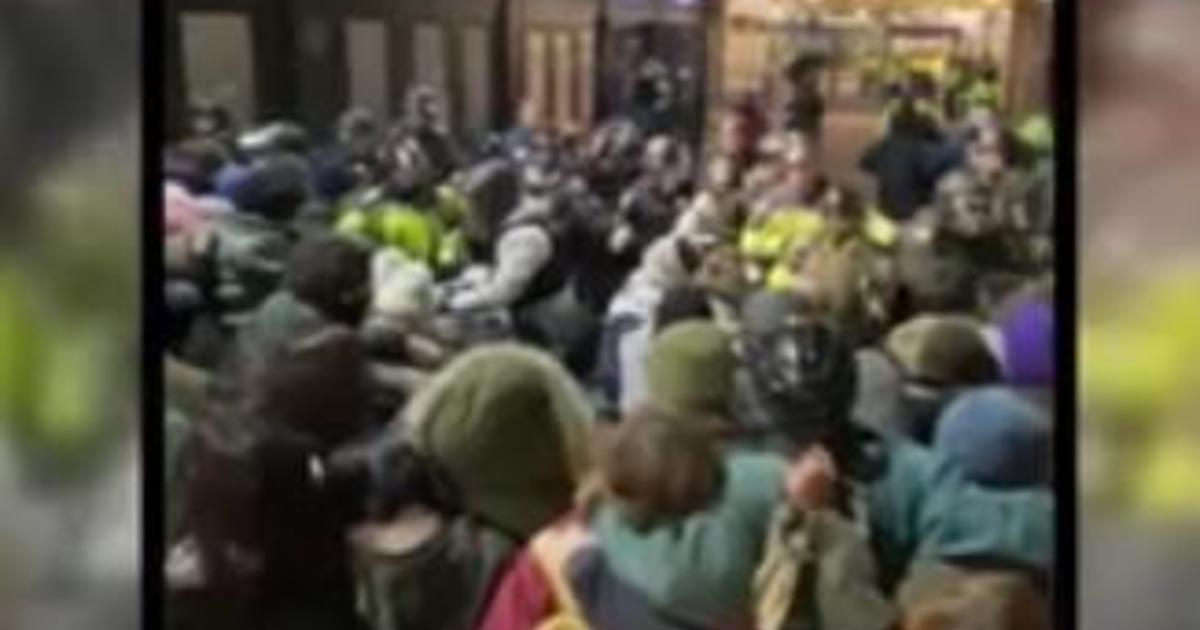Boston City Council Considering Police Officer Body Camera Proposal
BOSTON (CBS) - The Boston City Council is considering a proposal to equip Boston Police with body cameras.
But the city's top officials are sounding lukewarm about the contentious idea.
Police Commissioner William Evans says he won't rule it out, and will consider a pilot program. But he believes rather than provide citizens and police with a clear picture, it will build a wall with the community.
"All it is, is a gadget," said Evans. "What we need to do is build greater relationships and work strongly with the community to build respect and trust."
The Commissioner believes there are already numerous cell phones and surveillance cameras capturing what's happening on the streets. The measure is being tried in several major cities in the aftermath of police-involved shootings nationwide.
"It bothers me we're going to pay for the behavior of everyone else," said Evans. "I think our officers are doing a good job."
Related: I-Team: Mass. Police Departments Buying Body Cameras
The Boston City Council's Committee on Government Operations held a public hearing on the issue Wednesday night.
Mattapan's Segun Idowu, who supports the plan, told council members, "we don't want to wait any longer" and he challenged them to bring the cameras to the city's police force.
His sentiments were echoed by Carol Rose, the Executive Director of the ACLU of Massachusetts.
"Body-warn cameras protect the police department and the civilians they serve and protect," Rose testified. "We have the evidence to act. We don't have to wait for another killing to do the right thing," she added, referencing the deaths in recent months of suspects at the hands of police around the country.
Commissioner Evans is leery of going much further until his questions are answered.
"Putting a device on someone's lapel is not going to solve the historical bad relationship between the African American community and the police," Commissioner Evans told the panel.
"I love the ACLU but they won't let us put cameras on buildings, they won't let us put cameras out in the public, but they want us to wear body cameras," Evans continued. "It's very hypocritical."
For the city's police chief, it's more a matter of not feeling like the people he protects actually want his officers wearing the cameras.
"Let's get real here folks," Chief William Gross told reporter after he testified. "There are some people here who testified today [who] I've never seen at a community meeting, a crime scene or anything. Please, let's hear from the voice of the community, that's all I'm saying."
Boston Mayor Marty Walsh said he would look at the effectiveness of the cameras being used in other departments. He's also concerned about some unresolved legal issues.
"We don't know what happens with the cameras out there, what the information is used for," said Walsh.
City Councilor Charles Yancey, who is behind the Boston proposal says there will be a time limit on how long the video can be stored, unless it is needed for a criminal case. He says citizens will also be informed if the camera is on as they are approached by officers.
"The use of body cams will increase the level of trust and transparency between the community and police," said Yancey.
The city of Methuen is currently involved in a pilot program with the cameras, and several other communities are considering the idea as well.
"It shows the public exactly what happened if there is any question about what occurred on the street," said Methuen Police Chief Joseph Solomon.
He also believes it improves the behavior of officers who know they are being recorded as well.
WBZ-TV's Beth Germano and Jim Armstrong contributed to this report.
